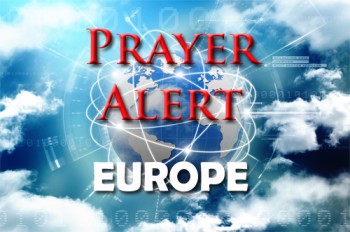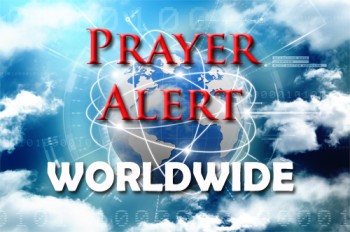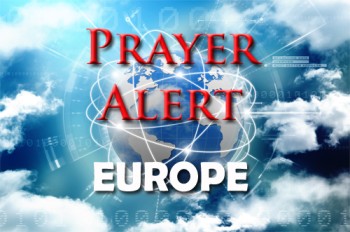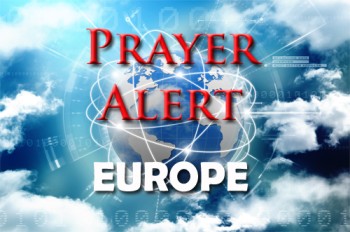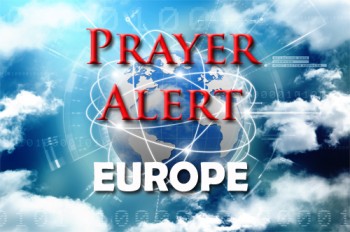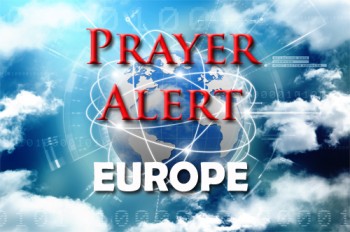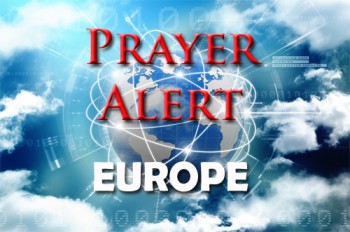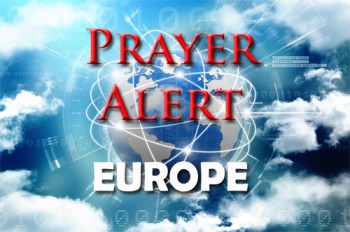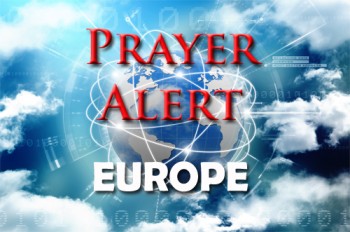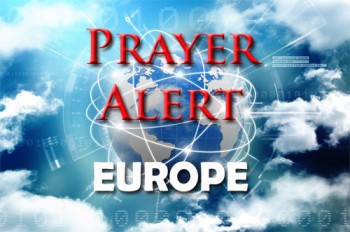Displaying items by tag: Belarus
Russia and Belarus conduct military exercises as NATO feels the heat
Watched by US military officers and delegates from Turkey and Hungary, Russia and Belarus have launched large-scale military exercises across their territories and nearby seas, showcasing advanced weaponry and tactical nuclear capabilities near NATO’s eastern flank. The drills, involving roughly 6,800 troops as well as fighter jets and missiles, practised modern combat tactics like drone-assisted infantry assaults. Relations between Washington and Minsk seem to be improving; Belarus has recently released 52 political prisoners, prompting the Trump administration to ease some sanctions. Meanwhile, NATO allies remain uneasy after Russian drones repeatedly violated Polish and Romanian airspace. European leaders worry the exercises highlight Russia’s growing nuclear reach and evolving battlefield strategies, while Moscow insists it is open to dialogue but blames Western nations for obstructing progress toward resolving regional tensions.
Global: digital repression
Governments are blocking swaths of the internet. Pro-democracy activist Ko Jimmy was executed after condemning Myanmar’s military coup online. Idamange Yvonne was sentenced to 15 years in prison for YouTube videos criticising Rwanda’s repressive president. Nicaraguan authorities sentenced journalist Miguel Urbina to nine years in prison for Facebook posts and tweets they deemed threatening to national integrity. Siarhei Tsikhanouski, who ran a YouTube channel criticising Belarus’s government, was jailed for 18 years for inciting unrest. These are only a fraction of the cases in an internet freedom survey by Freedom House, which stated, ‘The same rights protected offline should also be protected online. Human rights are restricted online in 70 countries and 2022 marked the 12th consecutive year of decline in internet freedom’. But it also found that when societies push back against repression, under the right conditions, they can win. Pray for the digital rights groups who research, advocate against, and bring strategic litigation cases to overturn repression online.
Polish PM holds talks in Europe on border crisis
Last weekend Polish prime minister Mateusz Morawiecki met his counterparts from Lithuania, Latvia, and Estonia, also hit by migrant pressure in recent months. During the week he has travelled to other European countries, which he did not name. Morawiecki said on Facebook that it is a ‘very serious geopolitical situation’ which requires a lot of diplomatic effort as many migrants remain in Belarus and continue attempting to enter Poland. ‘This is why I set out on a journey to other European countries, to talk about the international crisis provoked by the actions of Alexander Lukashenko. Unfortunately, there are numerous signs suggesting that this geopolitical crisis will continue for many months, even years’, Morawiecki said. Poland is pushing the migrants back to protect the border for all of Europe and has received words of support from the EU, NATO and the USA.
Belarus / Poland: border crisis
On 17 November Belarus provided temporary shelter for 1,000 freezing hungry migrants camping on its border with Poland, wanting to enter the EU. For months, thousands of men, women and children have been amassing at Belarus's western borders. Belarus has been accused of pushing migrants, mostly from Iraq, to the border to destabilise the EU. Belarus's long-time authoritarian leader, Alexander Lukashenko, has denied luring migrants to the border in revenge for EU sanctions. Iraqi Airways confirmed it would send a plane to Belarus on 18 December to take its citizens home. The EU has asked Middle Eastern countries to stop flights to Belarus; several have agreed. Poland, with EU backing, is determined not to let the migrants into the bloc and warned that the border and humanitarian crisis may go on for months. The situation will not be resolved quickly. See also
Belarus: criminal charges for church's outdoor worship?
At a meeting in Parliament and in two letters, officials warned New Life Pentecostal Church that continuing to meet for worship in the car park of their seized church in Minsk could lead to administrative or criminal prosecution (maximum punishment four years' imprisonment). The church vowed to continue its worship. ‘The authorities may initiate criminal charges,’ Pastor Vyacheslav Goncharenko said. ‘This is possible, given that they have gone as far as throwing us out of the building without compensation and imposing debts.’ City and state religious affairs officials refused to discuss the threats. The church has held services outdoors every Sunday - in snow, rain, or hot sunshine - since officials evicted the congregation from its building on 17 February. Pray for God continually to reassure Pastor Goncharenko of His presence with him as he stands for freedom of religion in Minsk.
Latvia: state of emergency at Belarus border
Latvia has declared a state of emergency at its Belarus border, authorising border guards, armed forces and police to use physical force to return migrants to the country from which they came. Latvia, like neighbouring Lithuania, has faced an influx of mostly Iraqi migrants in the past few months from Belarus. Their borders are also the EU's external border. The state of emergency will run until 10 November and will enable the armed forces and the state police to assist the border guards. Lithuania is also erecting a four-metre metal fence topped with razor wire on its Belarus border, saying it is impossible to protect their borders. Tensions have been strained between Belarus and European nations since a disputed election last year returned President Alexander Lukashenko to power despite mass protests against his regime.
Belarus: fear for blogger’s life
Roman Protasevich, 26, a prominent critic of Belarus dictator Alexander Lukashenko, and his girlfriend were taken off a Ryanair flight from Greece to Lithuania after it was diverted by a Belarus fighter jet to Minsk under the pretext of a bomb threat. He was arrested to 'confess' organising protests against the regime, and has been imprisoned in a detention centre. His father saw a video of him after his arrest and said his son’s nose appears broken and he wore heavy makeup to disguise bruising. Some is still visible. Many fear for Mr Protasevich's life. The dissident journalist/blogger has almost certainly been tortured. Past prisoners received broken bones, smashed teeth, skin lesions, electrical burns, brain traumas and kidney damage. Police in balaclavas would hold people for three sleep-deprived days, during which time they suffered electrocutions, stress positions, sleep deprivation, and starvation as guards pressurised them to sign confessions.
Belarus: investigating corruption
The UK has joined other European countries and donated €500,000 to a human rights project investigating the Lukashenko regime in Belarus. The longtime dictator denies human rights abuses in his country despite overwhelming evidence gathered by journalists and NGOs. The project will collect, store, and build evidence of human rights violations and torture against the people which may in future be used in independent criminal proceedings. The initiative is led by a coalition of expert NGOs and supported by the UK, Denmark, Germany, and other international partners to hold Lukashenko’s regime to account for violations following the rigged Presidential election in 2020. This independent initiative, free from political interference, will help defend democracy, media freedom and human rights. It will help the Belarusian people take a vital step further towards securing justice.
Belarus: protests and sanctions update
Opposition leader Sviatlana Tsikhanouskaya urged the EU to approve sanctions on officials accused of rigging the recent presidential election. Despite six weekends of mass protests against President Lukashenko over the disputed vote on 9 August, the EU has not followed through on its threat to impose sanctions on 40 Belarusian officials. ‘EU leaders have reasons not to push sanctions but I asked them to be more brave’. The opposition leader, who fled to Lithuania after the election, said: ‘Sanctions are important in our fight because they could force the so-called authorities to start dialogue with us in the opposition council.’
Belarus: growing tensions at Ukraine border over Jewish pilgrims
Rosh Hashanah, the Jewish New Year, runs from 18 to 20 September. Hasidic Jews travel to Ukraine every Jewish New Year in their tens of thousands to worship at Rabbi Nahman's tomb. But Ukraine is keen to avoid a spike in coronavirus infections, and Kyiv has closed its borders to foreigners until late September. However, Ukraine has accused Belarus of encouraging more Jewish pilgrims to go to their shared border, as 2,000 (including children) are camped out at the border of the two countries, where charities and pilgrims are running out of food and medical supplies. ‘We are stuck here with no money, no roof, no food or drink’, said Haim Weitshandler. He urged the Israeli government to resolve what he called a ‘humanitarian catastrophe’. Ukraine said that Belarus was ‘exacerbating tensions’ by claiming that the pilgrims will be able to cross the border.
